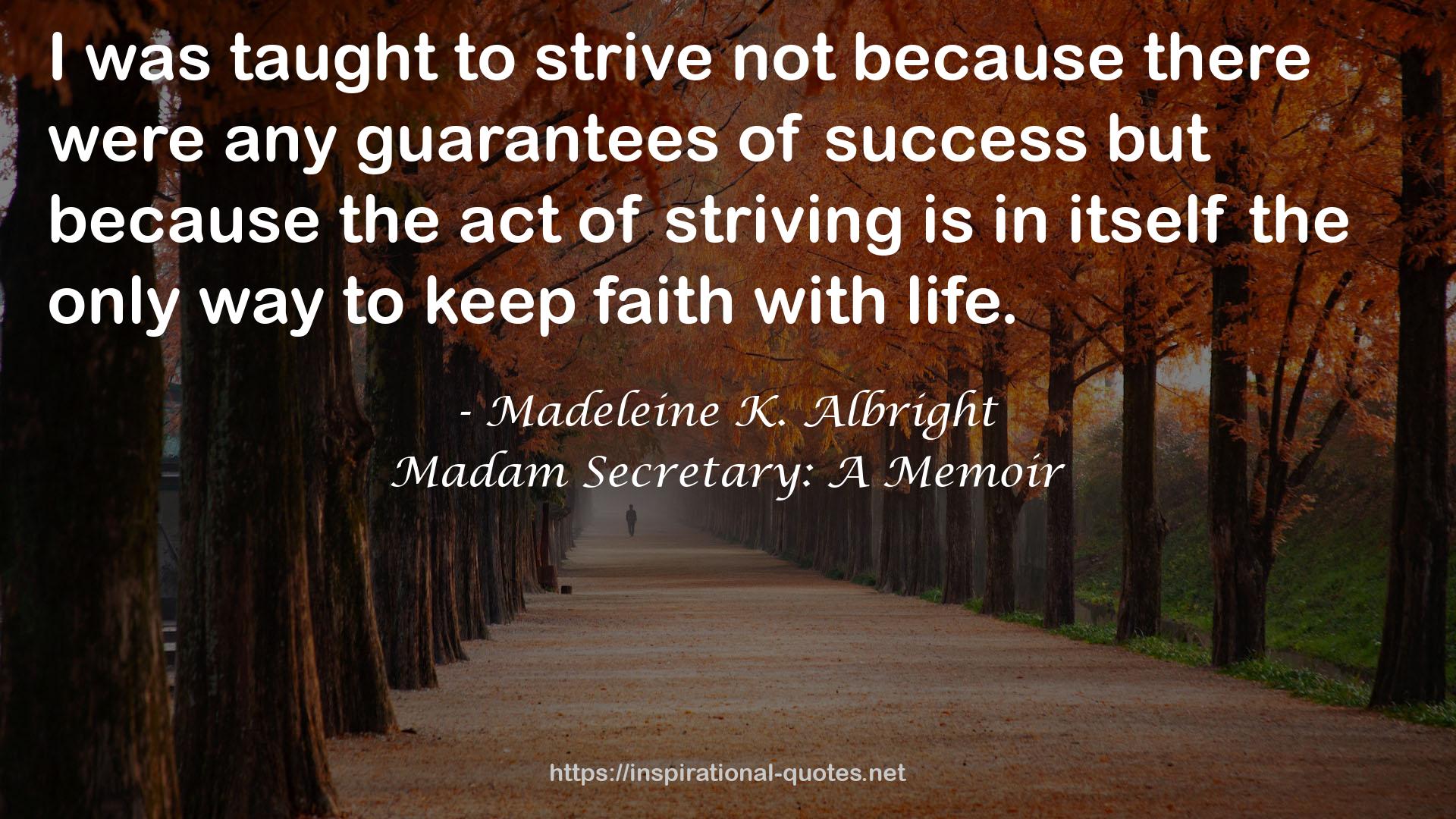Madeleine K. Albright QUOTES
14 " Finally, and even more seriously, I fear a return to the international climate that prevailed in the 1920s and 30s, when the United States withdrew from the global stage and countries everywhere pursued what they perceived to be their own interests without regard to larger and more enduring goals. When arguing that every age has its own Fascism, the Italian writer and Holocaust survivor Primo Levi added that the critical point can be reached “not just through the terror of police intimidation, but by denying and distorting information, by undermining systems of justice, by paralysing the education system, and by spreading in a myriad subtle ways nostalgia for a world where order reigned.” If he is right (and I think he is), we have reason to be concerned by the gathering array of political and social currents buffeting us today—currents propelled by the dark underside of the technological revolution, the corroding effects of power, the American president’s disrespect for truth and the widening acceptance of dehumanising insults, Islamophobia and anti-Semitism as being within the bounds of normal public debate. We are not there yet, but these feel like signposts on the road back to an era when Fascism found nourishment and individual tragedies were multiplied millions-fold. "
15 " Hitler lied shamelessly about himself and about his enemies. He convinced millions of men and women that he cared for them deeply when, in fact, he would have willingly sacrificed them all. His murderous ambition, avowed racism, and utter immorality were given the thinnest mask, and yet millions of Germans were drawn to Hitler precisely because he seemed authentic. They screamed, “Sieg Heil” with happiness in their hearts, because they thought they were creating a better world. "
17 " With this warning, Mussolini demanded and was given authority to do just about whatever he wanted; but his initial priority, surprisingly, was good government. He knew that citizens were fed up with a bureaucracy that seemed to grow bigger and less efficient each year, so he insisted on daily roll calls in ministry offices and berated employees for arriving late to work or taking long lunches. He initiated a campaign to drenare la palude (“drain the swamp”) by firing more than 35,000 civil servants. He repurposed Fascist gangs to safeguard rail cargo from thieves. He allocated money to build bridges, roads, telephone exchanges, and giant aqueducts that brought water to arid regions. He gave Italy an eight-hour workday, codified insurance benefits for the elderly and disabled, funded prenatal health care clinics, established seventeen hundred summer camps for children, and dealt the Mafia a blow by suspending the jury system and short-circuiting due process. With no jury members to threaten and judges answerable directly to the state, the courts were as incorruptible as they were docile. Contrary to legend, the dictator didn’t quite succeed in making the trains run on time, but he earned bravos for trying. "

